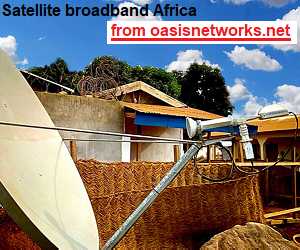| Home Login Register |
| Satellite Internet forum › Satellite Internet - Americas › Ka or Ku Band??? Canada |
|
Pages: 1
|
Ka or Ku Band??? Canada(Read 10229 times) |
|
Ex Member
Ex Member
|
May 16th, 2007 at 5:18pm
|
| Back to top |
IP Logged
|
|
USN - Retired
YaBB Moderator
★★★★★ Offline Posts: 837 Kentucky (USA) |
Reply #1 - May 16th, 2007 at 5:49pm
|
| Back to top |
USN (Ret)
IP Logged
|
|
Ex Member
Ex Member
|
Reply #2 - May 16th, 2007 at 6:42pm
|
| Back to top |
IP Logged
|
|
pgannon
Senior Member
★★★ Offline Posts: 109 |
Reply #3 - May 18th, 2007 at 5:23pm
|
| Back to top |
« Last Edit: Nov 17th, 2014 at 10:30am by Admin1 »
IP Logged
|
|
Ex Member
Ex Member
|
Reply #4 - Aug 28th, 2008 at 7:44pm
|
| Back to top |
IP Logged
|
|
EMC2277
Member
★★ Offline Posts: 8 FL |
Reply #5 - Jun 11th, 2009 at 7:15pm
|
| Back to top |
Best Regards,&&&&Stuart A. Guillot&&Business Manager, Oil and Gas Vertica
IP Logged
|
|
Pages: 1
|
Email me: eric@satsig.net
Powered by YaBB 2.5.2!
YaBB Forum Software © 2000-. All Rights Reserved.
Disclaimer, Terms of Use and Privacy Forum User Agreement Forum rules Cookie policy.


